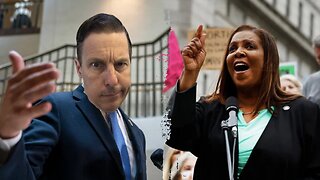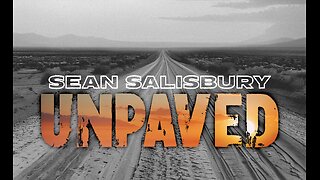Premium Only Content

Karl Heinrich Marx was a German philosopher, economist, historian, sociologist, political
Karl Heinrich Marx was a German philosopher, economist, historian, sociologist, political theorist, journalist, critic of political economy, and socialist revolutionary. His best-known titles are the 1848 pamphlet The Communist Manifesto and the four-volume Das Kapital (1867 to 1883). Marx's political and philosophical thought had enormous influence on subsequent intellectual, economic, and political history. His name has been used as an adjective, a noun, and a school of social theory.
Born in Trier, Germany, Marx studied law and philosophy at the universities of Bonn and Berlin. He married German theatre critic and political activist Jenny von Westphalen in 1843. Due to his political publications, Marx became stateless and lived in exile with his wife and children in London for decades, where he continued to develop his thought in collaboration with German philosopher Friedrich Engels and publish his writings, researching in the British Museum Reading Room.
Marx's critical theories about society, economics, and politics, collectively understood as Marxism, hold that human societies develop through class conflict. In the capitalist mode of production, this manifests itself in the conflict between the ruling classes (known as the bourgeoisie) that control the means of production and the working classes (known as the proletariat) that enable these means by selling their labour-power in return for wages. Employing a critical approach known as historical materialism, Marx predicted that capitalism produced internal tensions like previous socioeconomic systems and that these tensions would lead to its self-destruction and replacement by a new system known as the socialist mode of production. For Marx, class antagonisms under capitalism—owing in part to its instability and crisis-prone nature—would eventuate the working class's development of class consciousness, leading to their conquest of political power and eventually the establishment of a classless, communist society constituted by a free association of producers. Marx actively pressed for its implementation, arguing that the working class should carry out organised proletarian revolutionary action to topple capitalism and bring about socio-economic emancipation.
Marx has been described as one of the most influential figures in human history, and his work has been both lauded and criticised. His work in economics laid the basis for some current theories about labour and its relation to capital. Many intellectuals, labour unions, artists, and political parties worldwide have been influenced by Marx's work, often modifying or adapting his ideas. Marx is typically cited as one of the principal architects of modern social science.
CHILDHOOD AND EARLY EDUCATION: 1818 TO 1836
Karl Heinrich Marx was born on 5 May 1818 to Heinrich Marx (1777 to 1838) and Henriette Pressburg (1788 to 1863). He was born at Brückengasse 664 in Trier, an ancient city then part of the Kingdom of Prussia's Province of the Lower Rhine. Marx's family was originally non-religious Jewish, but had converted formally to Christianity before his birth. His maternal grandfather was a Dutch rabbi, while his paternal line had supplied Trier's rabbis since 1723, a role taken by his grandfather Meier Halevi Marx. His father, as a child known as Herschel, was the first in the line to receive a secular education. He became a lawyer with a comfortably upper middle class income and the family owned a number of Moselle vineyards, in addition to his income as an attorney. Prior to his son's birth and after the abrogation of Jewish emancipation in the Rhineland, Herschel converted from Judaism to join the state Evangelical Church of Prussia, taking on the German forename Heinrich over the Yiddish...
LINK TO ARTICLE: http://en.wikipedia.org/wiki/Karl_Marx
TAGS: Karl Marx, Writers about globalization, Writers about activism and social change, University of Jena alumni, University of Bonn alumni, Theorists on Western civilization, Stateless people, Socialist economists, Socialism, Social philosophers, Social critics, Revolutionaries, Philosophical anthropology, Philosophers of technology, Philosophers of science, Philosophers of religion, Philosophers of mind, Philosophers of law, Philosophers of history, Philosophers of ethics and morality, Philosophers of education, Philosophers of economics, Philosophers of culture, People from Trier, People from the Grand Duchy of the Lower Rhine, Pamphleteers, Ontologists, Moral philosophers, Metaphysicians, Members of the International Workingmen's Association, Materialists, Marxist theorists, Marxist journalists, Marxist historians, Marxian economists, Male journalists
#GeneralKnowledge #AudibleWikiFactory #Audible #Wikipedia #KarlMarx
-
 41:13
41:13
The Audible Wiki Factory
2 years agoThe Oktoberfest is the world's largest Volksfest, featuring a beer festival and a travelling
443 -
 LIVE
LIVE
vivafrei
1 hour agoPride Goeth Before the Fall! Derelict Democrats! Tucker Cover-Up? Charlamagne the Blasphemer & MORE!
8,938 watching -
 LIVE
LIVE
The Quartering
1 hour agoTrump ENDORSES Sydney Sweeney, Sad Epstein Files Update, Gen Z Microsoft Worker Self Own
10,189 watching -
 LIVE
LIVE
Dr Disrespect
3 hours ago🔴LIVE - DR DISRESPECT - WARZONE - RANDOMLY GENERATED LOADOUTS EVENT
5,203 watching -
 LIVE
LIVE
StoneMountain64
2 hours agoAnswering BATTLEFIELD 6 Questions and Reviewing TOP Clips (BETA DOWNLOADED)
250 watching -
 LIVE
LIVE
Jeff Ahern
41 minutes agoMonday Madness with Jeff Ahern
88 watching -
 1:11:30
1:11:30
Sean Unpaved
2 hours agoCowboys Chronicle: Jerry Jones, Micah Parsons, & the NFC East Battle
20.6K -
 1:53:23
1:53:23
Tucker Carlson
2 hours agoMargaret Roberts Exposes the True Story of the Oklahoma City Bombing and the Ongoing Cover-Up
20.3K50 -
 6:09:03
6:09:03
JuicyJohns
6 hours ago $2.20 earned🟢#1 REBIRTH PLAYER 10.2+ KD🟢$500 GIVEAWAY SATURDAY!
60.7K2 -
 LIVE
LIVE
Viss
3 hours ago🔴LIVE - The Energy, The Tactics, and The Knowledge You Need To Win! - PUBG
148 watching